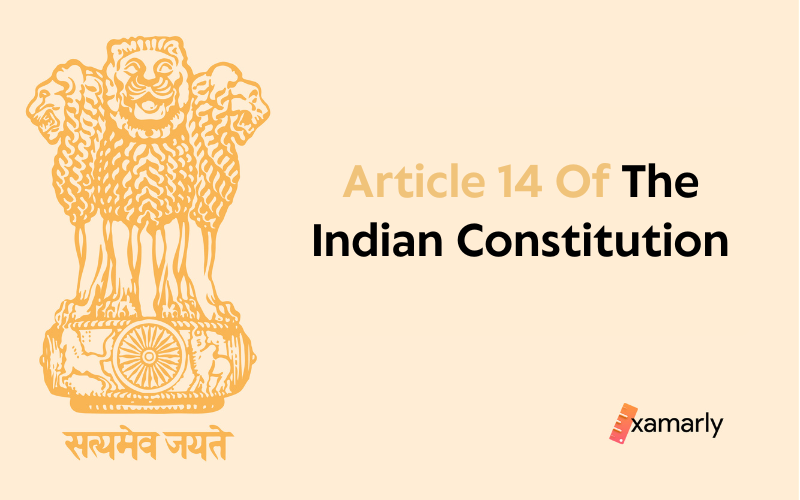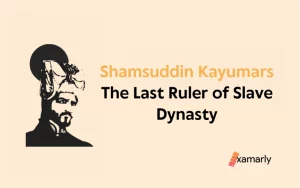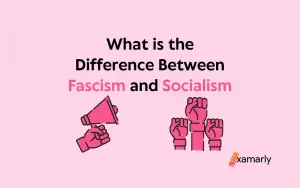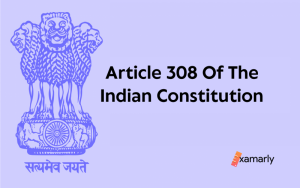The constitution of India contains Article 14 which states Equality before the law. Equality before the law is a basic right of every individual that prohibits discrimination on grounds of religion, caste, or creed. Article 14 of the Indian Constitution enshrines the principle of equality before the law. As such, it guarantees equal protection under the law for all people in India. It also protects individuals from discrimination.
- What Is Article 14 Of The Indian Constitution?
- Reasonable Classification And Non-Arbitrariness
- Equality Before Law
- Equal Protection Of The Law
- Access To Justice
- Protection Against Arbitrariness
- Constitutional Validity Of Special Courts
- Administrative Discretion
- Some More Case Laws
- No Equality In Illegality
- Conclusion
- FAQs
What Is Article 14 Of The Indian Constitution?
Article 14 stipulates that the state shall not deny any person equality before the law or equal protection under the law within India’s territory on the grounds of race, religion, caste, gender, or place of birth. Liberals believe that all people should be treated equally, and Article 14 ensures that all of our citizens will receive this protection. The degree of equality a person enjoys in society is inversely correlated with their degree of freedom.
- The aim of Article 14 is to ensure ‘equality of status’ for all the citizens of India.
- Its purpose is to establish within the country the ‘rule of law’.
- This is put in place for the benefit of both the citizens as well as the non-citizens.
- It is fully inclusive of all people, whether legal or natural.
- The Right to Equality under Article 14 has two aspects- Equality before the law and Equal protection of laws.
Reasonable Classification And Non-Arbitrariness
- While Article 14 of the Constitution prohibits discrimination, it allows different treatment for different parts of society. This is known as the doctrine of reasonable classification.
- A reasonable classification must have a rational relationship to the object sought.
- The test of reasonable classification” is one way to determine if Article 14 has been violated. The principle essentially tests whether a law is applied equally to all citizens in the same circumstance.
- Equal protection of the law is a positive concept, but it cannot be used to justify a discriminatory policy or practice.
- While Article 14 of the Constitution of India does not prohibit legislation, it does prohibit unreasonable classification.
- The doctrine has undergone several evolutions over the years. The Apex Court has defined what is “reasonable” and laid down the tests for determining what is “reasonable.”
- It has also evolved its doctrine of “non-arbitrariness.”
- The Doctrine of Reasonable Classification in Article 14 of the Constitution of India is a legal framework to determine if an action is not discriminatory. In other words, an action cannot be discriminatory if it arouses negative feelings.
Equality Before Law
- Every person has the same legal rights as every other citizen, according to the equal protection clause in Article 14 of the Indian Constitution.
- This right does not apply to everyone, however, states can still enact laws that favor particular classes over others.
- There are many facets to the right to equality before the law. First, the state has an obligation to make society as equal as possible. According to this principle, there are no privileged groups in society. This principle is spelled out in the preamble and part iv of the Constitution of India.
- Equality before the law is a principle derived from the English common law. It means that every individual should enjoy the same rights and privileges under the law, irrespective of race, social status, or wealth.
- Article 14 also specifies that “like shall be treated alike,” which implies that there is no distinction based on race or social status.
- Moreover, the law cannot discriminate between men and women.
Equality Before The Law And Absolute Equality
- Equality before the law means that all members of a society are treated equally, both in terms of privileges and liabilities.
- The same law should be applied to all in a given situation and no one shall be discriminated against on the basis of race or social status.
- While equality before the law is fundamental to the constitution of India, there are limitations on the constitutional principle. It is not possible for the legislature to treat people equally in every way. For example, in taxation, certain properties are exempt or subject to a special tax.
- Equal protection of the law and equality before the law are two of the most fundamental principles of the rule of law. Both Articles 14 and Article 7 of the Universal Declaration of Human Rights enshrine these principles.
- The Right to Equality is not absolute. It is subject to a number of exceptions. Such exceptions could be the immunity granted to the president and governor.
- Reservations are another common example that demonstrates how the right to equality is not unrestricted and can be used effectively to meet the needs of society. For ex: some states may choose to enact laws that benefit a certain class of persons, including women, minorities, and people with disabilities.
Equality Before The Law And Rule Of Law
- The Rule of Law is given by Prof. Dicey.
- According to the law, no one is above the law. Everyone is equal before the law.
- Rule of Law guarantees every person the Equality before Law.
Equal Protection Of The Law
- One of the beneficial ideas associated with equality is this. Equal protection of the law is mentioned in Section 1 of the 14th Amendment to the US Constitution.
- According to this concept, everyone in India should be treated equally and get the same level of legal protection. The state cannot contest this since it guarantees that everyone who lives on Indian land should be treated equally.
- In Stephens College v. The University of Delhi, a similar idea was raised. The key issue raised in this instance when the college admissions process was evaluated was the legitimacy of the preference given to Christian students in the admissions process. The Supreme Court ruled that giving preference to a particular class of students at a minority college that receives state support does not violate Article 14 of the Constitution.
Basawaraj v. the Spl. Land Acquisition Officer
- According to the appellant, the High Court erred in Basawaraj v. The Spl. Land Acquisition Officer by failing to excuse the delay because there were numerous justifications for their inability to be at the High Court on time. Article 14 of the Indian Constitution is not intended to create permanent illegality, not even by extending an earlier bad decision.
- It was determined that the appellant, in this case, was negligent because they were unable to provide a good enough reason for the delay, and their appeal was therefore denied.
Access To Justice
- No one can be barred from access to justice.
- Everyone has the right to be treated equally. They should have access to justice.
- Access to justice refers to the right to freely participate in legal proceedings.
- In addition, a large number of people lack access to justice owing to ignorance or lack of economic knowledge. Here, it means that the government must take a crucial role in ensuring that they receive justice. Our legal system needs to be reformed in order to provide access to justice. We must improve the legal aid program.
Protection Against Arbitrariness
- Article 14 of the Constitution of India contains provisions that prevent state action from being arbitrary. It requires that any state action be based on a fair, reasonable, and unambiguous basis. Hence, an individual or group should not be subjected to discrimination simply because of a difference in background or ethnicity.
- Article 14 of the Constitution of India protects citizens from arbitrariness in government, including legislative action and executive policy. It also applies to the “authority” conferred by Article 12 on state bodies to carry out a certain action. However, while these provisions can be interpreted to prevent arbitrariness in some instances, they do not apply to all instances.
- Arbitrariness is a violation of a person’s fundamental rights, such as freedom from discrimination, in the sense that an action or policy is based on chance or impulse. The Supreme Court’s ruling in the landmark Royappa Case interpreted Article 14 as guaranteeing equal treatment to all, without discrimination.
Constitutional Validity Of Special Courts
- Equality before Law is not absolute. It has several exceptions to it and one such is Article 246(2).
- The legislatures of all States may make legislation addressing any of the matters enumerated in List III of the seventh schedule, notwithstanding clause (3) and subject to clause (1).
- The Special Courts Bill v. Unknown case called into question the legality of Special Courts that were constituted under the Special Courts Act. The topic of whether or not this Act’s creation of special courts violated Article 14 of the Indian Constitution was raised.
- These courts were determined to be constitutionally legitimate. It was because there existed knowledge about these courts’ logicality and reasonability.
Administrative Discretion
Administrations are free to respond or make decisions in every situation based on the circumstances. Here, it’s critical to first grasp the meaning of the word discretion. Basically, discretion refers to a person’s capacity to discern between what is right and wrong, true and untrue, etc., and to respond to these circumstances appropriately.
The legislature bases every law it passes on a number of assumptions, thus it is impossible for it to precisely predict all of the consequences. Ensuring equality across all societal segments is the primary goal of administrative discretion. This administrative discretion should, however, only be exercised sparingly and within bounds. The level of discretion could be arbitrary.
Reasonable Classification Test
The Supreme Court has defined the meaning and scope of the Reasonable Classification Test under Article 14 of our Constitution.
The principles established in the Damia case are still applicable to classifications made under this provision. The burden of proof rests with the person who seeks to challenge the classification. However, the court may look at common knowledge, matters of the report, and the history of the times to determine whether a classification is reasonable or not.
The equal protection clause in Article 14 of the Constitution of India protects the rights of people from discrimination. However, it does not mean that all laws should be applied equally. The law should be proportionate to the people in a given class.
Test Of Reasonable Discretion
The test of reasonable discretion under article 14 is based on the principle of equality before the law.
The purpose of the reasonable discretion test is to ensure that administrative power is not exercised arbitrarily. Any action taken by the administration that defies this standard will be declared unconstitutional and void. This means that the administration should guide its discretion in a way that prevents it from enacting discriminatory policies.
Some More Case Laws
Some of the cases related to article 14 of the Indian constitution have been discussed below.
Shayara Bano v UOI, WP (C) 118/2016
In the Triple Talaq Case, the Supreme Court’s five-judge panel ruled that the practice of immediate triple talaq (Talaq-ul-biddat) was unlawful. The Bench noted that the equality of status was a manifestation of the fundamental right to equality protected by Article 14 of the Constitution. According to Article 14, the guarantee of equality is intimately linked to the values of gender equality, gender equity, and gender justice. It is utterly irreconcilable with the word and spirit of Article 14 and Article 15 of the Constitution to grant a social standing based on patriarchal norms or on the goodwill of the male population.
Air India v Nargesh Meerza, [1978] 2 SCR 621
Upon turning 35, getting married, or becoming pregnant for the first time, female flight attendants of the state-owned airline Air India were compelled to retire. Male attendants were not subject to the same restrictions. The restrictions were overturned by the Court, which determined that they violated Article 14 by being official arbitrariness and hostile discrimination.
No Equality In Illegality
Equal treatment under the law is not possible for those who have committed crimes. In front of a court or other legal authority, someone who is engaging in illegal activity cannot assert their right to equality. The Patna High Court’s decision in the case of Baliram Prasad Singh v. State of Bihar makes it very obvious that there cannot be equality for illegal conduct because the petitioner was at fault and was forced to make up for his illegal deed.
Conclusion
Equality is the right that every Indian citizen should enjoy. The Constitution protects everyone against discrimination on the grounds of religion, gender, race, or age. There should be equality of opportunity. The same applies to public employers under the State. No citizen should be denied employment or advancement based on a discriminatory basis. Not only this, but equality extends to economic equality and legal equality also.
If there will be equality, then everyone will have better opportunities for growth that will not only help in their personal growth but will also lead to economic growth in the long run.
FAQs
Define The Right To Equality
One of the six essential rights, known as the “Right to Equality,” guarantees all Indian residents equal standing and access to opportunities. The Indian Constitution’s Article 14 guarantees equality before the law, while Articles 14 through 18 cover further essential rights that uphold equality.
What Is The Exception Of Article 14?
The 42nd Amendment Act of 1976 significantly reduced the reach of the right to equality guaranteed by Article 14 of the Constitution. The Amendment Act’s New Article 31-C stipulates that laws passed by the state to carry out the directive principles outlined in clauses b or c of Article 39 may not be challenged on the grounds that they violate Article 14 in any way.






